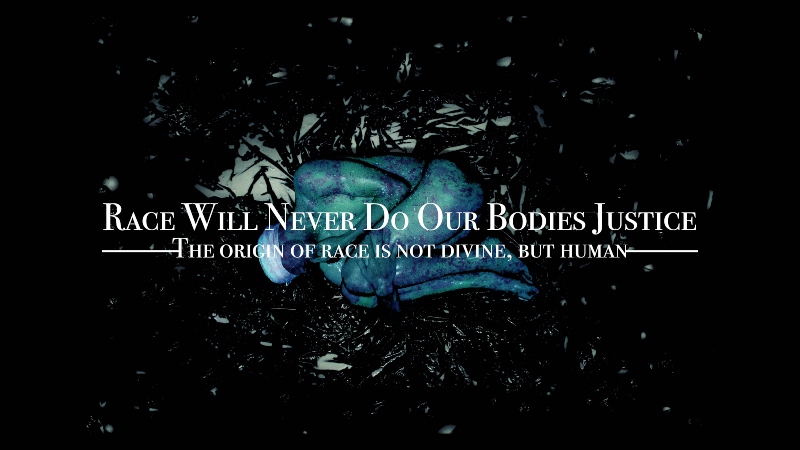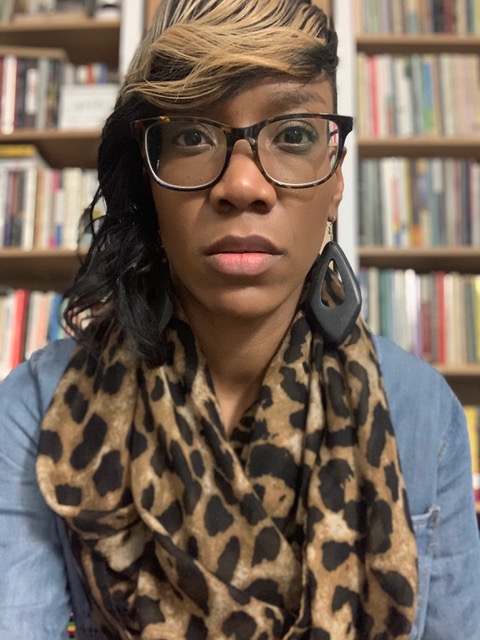Race will never do our bodies justice
The origin of race is not divine — but human. Yet we live these racialised identities, not the baptismal one offered through Christ, writes Starlette Thomas

Where does race come from? It is not innate, not natural, not as up close and personal as we make it. And this is a part of the problem. It is the fact that the Church identifies its members' bodies and consequently, the Body of Christ, with the sociopolitical construct of race.
What do I mean by “sociopolitical construct”? We made it up. The origin of race is not divine— but human. Race was not “in the beginning.” Brian Bantum says in The Death of Race: Building a New Christianity in a Racial World, race is “a word made flesh.” He says, “Race is a tragic incarnation…”
We have chosen an idea about identity over the imago Dei. It is the way that we have agreed to relate. Charles W. Mills calls it “the racial contract.” He writes, “The peculiar contract… is not a contract between everybody (“we the people”), but between just the people who count, the people who really are people (“we the white people”).” These socially coloured white people have agreed to dominate other cultures and we accept it. Nod our heads in agreement every time we refer to ourselves as coloured people—because white is a colour too.
Never mind the words of the once scale-eyed Apostle Paul who wrote to the Galatians: “As many of you as were baptised into Christ have clothed yourselves with Christ. There is no longer Jew or Greek, there is no longer slave or free, there is no longer male and female; for all of you are one in Christ Jesus” (3.27-28 NRSV).
One. And there’s no need to feign deafness because Paul says it again to the Colossians: “Do not lie to one another, seeing that you have stripped off the old self with its practices and have clothed yourself with the new self, which is being renewed in knowledge according to the image of the creator. In that renewal, there is no longer Greek or Jew, circumcised or uncircumcised, barbarian, Scythian, slave and free; but Christ is all and in all (3.9-11)!”
All. No wiggle room and no way we are getting out of this truth.
This has already been debated and resolved at the Council of Jerusalem with Peter and Paul, Simeon and James (cf. Acts 15.1-21). These differences were settled in Christ and through our baptismal identity. We belong to him. We begin again. New creatures, erasing all that we were back then. All these divisions are brought together in him; he consumes them all when we go down in the waters with him.
Hatchets and our hatreds buried.
The same can be said of the sociopolitical construct of race. Here are no longer beige (i.e. bi- cultural) or brown people. There are no longer black or red people, yellow or white people. Paul said to the Corinthians, “Not all flesh is alike, but there is one flesh for human beings…” (15.39, NRSV). Amen. Amen?
But I cannot get an “Amen” in most churches. Why? Perhaps, it is because the Church has coloured in God’s face and Jesus’s face, coloured in sacred space. Black Church. White Church. We live in black and white. We live these racialised identities—not the baptismal one offered through Christ. Born again, we are not. Instead, we offer more of the same differences.
Segregated on Sundays even; there is no such thing as race relations. Because race makes us strangers to ourselves first and then to our neighbour for no other reason than our physical appearance. We let the eyes have it and they determine which bodies count. And the body count for crimes committed in the name of race, sacrificed to this idol of aesthetic supremacy are unknown as the bodies keep piling up in the middle of city streets and in their homes.
In North America, the names include George Floyd, Ahmaud Arbery, Breonna Taylor and Elijah McCain. They are the most recent but this has been happening for a long time. See Ida B. Well’s The Red Record, published in 1895, where Frederick Douglass writes in the preface:
"If the American conscience were only half alive, if the American church and clergy were only half Christianized, if American moral sensibility were not hardened by persistent infliction of outrage and crime against colored people, a scream of horror, shame and indignation would rise to Heaven wherever your pamphlet shall be read.”
But I haven’t heard much. Because race won’t allow it. Race will never do our bodies justice.
 The Revd Starlette Thomas is a natural shepherd, leading the alphabet and people to their best and fullest expression. She presently serves 160 churches as the Minister to Empower Congregations with the D.C. Baptist Convention and is pursuing a Doctor of Ministry at Wesley Theological Seminary. She regularly blogs on the intersections of race, faith and community- building at www.racelessgospel.com.
The Revd Starlette Thomas is a natural shepherd, leading the alphabet and people to their best and fullest expression. She presently serves 160 churches as the Minister to Empower Congregations with the D.C. Baptist Convention and is pursuing a Doctor of Ministry at Wesley Theological Seminary. She regularly blogs on the intersections of race, faith and community- building at www.racelessgospel.com.
This blog was also included in the Spring 2021 Baptists Together magazine. Click here for a pdf of the article.
Want to comment on this reflection? Please leave your thoughts via this contact form.
Some comments may be shared below.